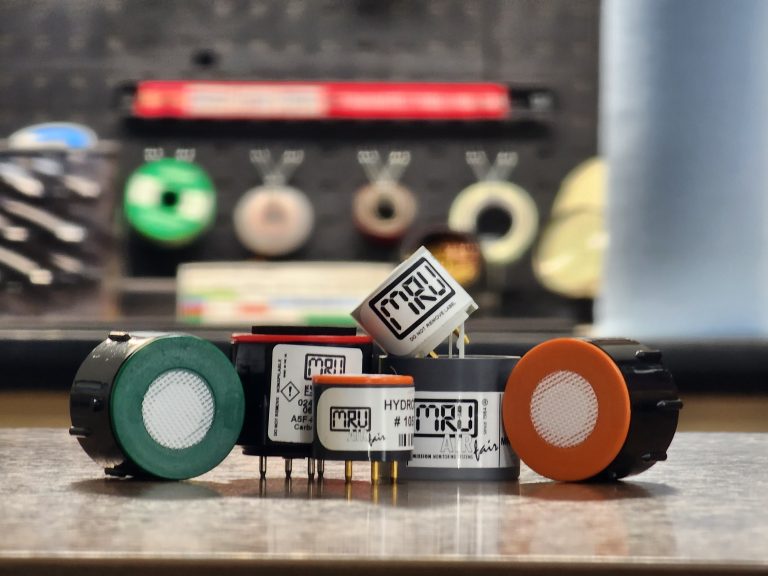
Introduction
Electrochemical sensors have become vital components in various industries, from environmental monitoring to healthcare. At MRU Instruments, we specialize in providing top-quality electrochemical sensors designed for accuracy, reliability, and durability. In this blog post, we’ll explore how these sensors work and why they possess a finite shelf life.
What are Electrochemical Sensors?
Electrochemical sensors are devices that convert chemical information into an electrical signal. They are commonly used for detecting and measuring concentrations of specific substances in a mixture, such as gases in air quality monitoring.
Key Components:
- Electrodes: The primary components where the electrochemical reactions occur.
- Electrolyte: A medium that allows ions to move between electrodes.
- Membrane: Separates the sample from the electrode and selectively allows specific substances to pass through.
How Do They Work?
The principle of operation of an electrochemical sensor involves three main steps:
- Diffusion: The target gas or substance diffuses through the membrane and reaches the electrode surface.
- Reaction: At the electrode, an electrochemical reaction occurs. This reaction is specific to the substance being detected.
- Signal Generation: The reaction produces an electrical current proportional to the concentration of the target substance.
Types of Reactions:
Oxidation: Where the substance loses electrons.
Reduction: Where the substance gains electrons.
Why Do They Have a Shelf Life?
Electrochemical sensors, despite their robust design, have a finite shelf life. This limitation is due to several factors:
- Electrolyte Degradation: Over time, the electrolyte can dry out or become contaminated, impacting sensor performance.
- Electrode Aging: The electrodes undergo gradual changes due to continuous reactions, affecting their responsiveness and accuracy.
- Membrane Deterioration: The selective membrane can become less effective due to physical or chemical changes.
- Environmental Factors: Exposure to extreme temperatures, humidity, and certain chemicals can accelerate sensor degradation.
Maximizing Sensor Life
At MRU Instruments, we understand the importance of maximizing the lifespan of your electrochemical sensors. Here are some tips:
- Proper Storage: Store sensors in a cool, dry place, and adhere to recommended storage conditions.
- Regular Calibration: Regular calibration ensures accuracy and can identify potential issues early.
- Avoiding Contaminants: Keep sensors away from substances that could damage or contaminate them.
- Timely Replacement: Replace sensors at the end of their recommended lifespan to ensure consistent and reliable measurements.
Conclusion
Electrochemical sensors are indispensable tools in modern industry and research. Understanding how they work and why they have a shelf life is crucial for their effective and safe usage. At MRU Instruments, we’re committed to providing our customers with high-quality sensors and the knowledge to use them effectively. For more information or to explore our range of products, visit us at mru-instruments.com.
For any further inquiries or assistance, feel free to contact our expert team at MRU Instruments. We’re here to help you make the most out of your electrochemical sensing needs!


